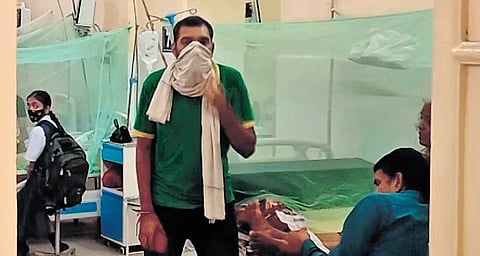

NEW DELHI: Nearly 250 cases of dengue were recorded in the national capital in a week, amid a rise in the number of vector-borne diseases, according to the official data.
The Municipal Corporation of Delhi (MCD) on Wednesday released official data revealing that over 900 dengue cases were registered in the city till September 14 with a positivity rate of 18 per cent.
Till September 9, there were 650 dengue cases reported in the city, civic body officials had said. The agency claimed that the cases registered and the positivity rate of the virus this year is less as compared to last year.
“A total of 917 cases of dengue have been registered from 1 January to 14 September this year, whereas 2,264 cases were registered during the same period last year. This year, the positivity rate of dengue test during the same period is recorded at 18 per cent, whereas last year, the positivity rate was 56 per cent,” the statement read.According to the statement, in the Central zone, a total of 82 cases of dengue have been registered till September 14, whereas 269 cases were registered during the same period last year.
In the City SP zone, 39 cases were registered, in Civil Lines Zone 52 case, in South Zone 100 case and in Karol Bagh, 86 cases have been registered, as per the statement.
Last year, 106 cases were registered in the City SP zone, 112 in the Civil Lines Zone, 314 in the South Zone and 205 cases in Karol Bagh during the same period, it added.
On September 8, Delhi registered its first dengue death of the year. A 54-year-old man died of dengue at Lok Nayak Hospital, a senior hospital official had said earlier. The civic body said it has issued 1,06,050 legal notices, 36,008 challans, and 8,639 administrative charges against those flouting Vector Borne Diseases Bye-Laws under the DMC Act. Police complaints will also be lodged against defaulters allowing repeated mosquito breeding, the statement said.
The corporation has stepped up measures to control mosquito breeding and has implemented a multi-pronged strategy to combat the cases including house-to-house visits, regular spraying of insecticides, biological control measures, and special fogging operations, the statement said.
(WITH PTI INPUTS)